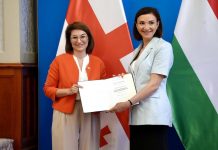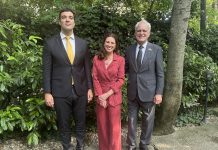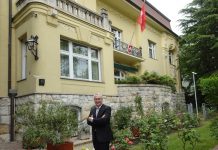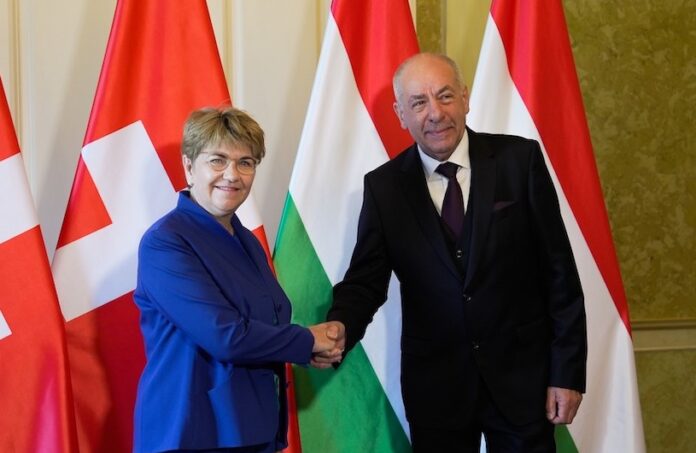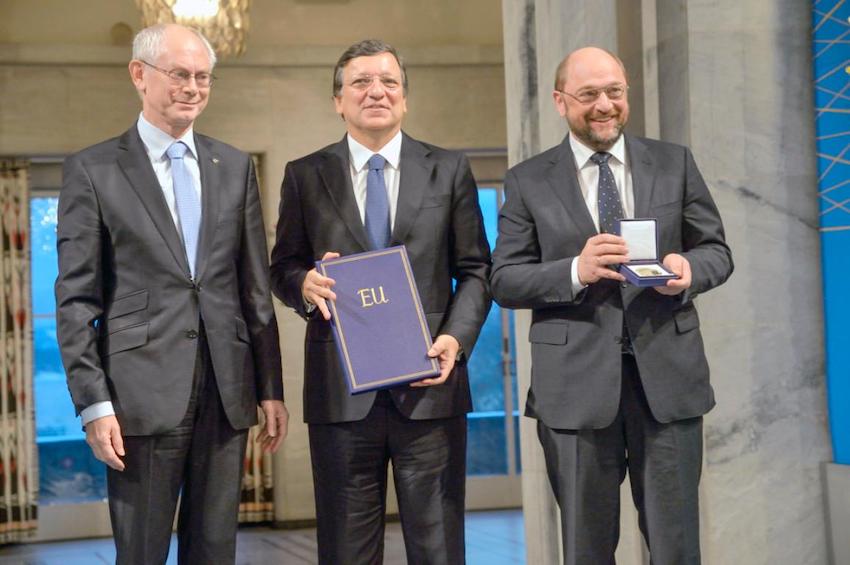“It is important to strengthen cohesion and dialogue on the European continent”
Edited by Anna Popper
President of the Swiss Confederation, Federal Counsellor Viola Amherd, recently embarked on an official visit to Hungary ahead of the next EU Council Presidency, marking a significant moment in Swiss-Hungarian diplomatic relations. The visit of President Amherd, Head of the Federal Department of Defence, Civil Protection and Sport (DDPS), started with a thought-provoking lecture she delivered at Andrássy Universität Budapest (AUB) on 18 April 2024.

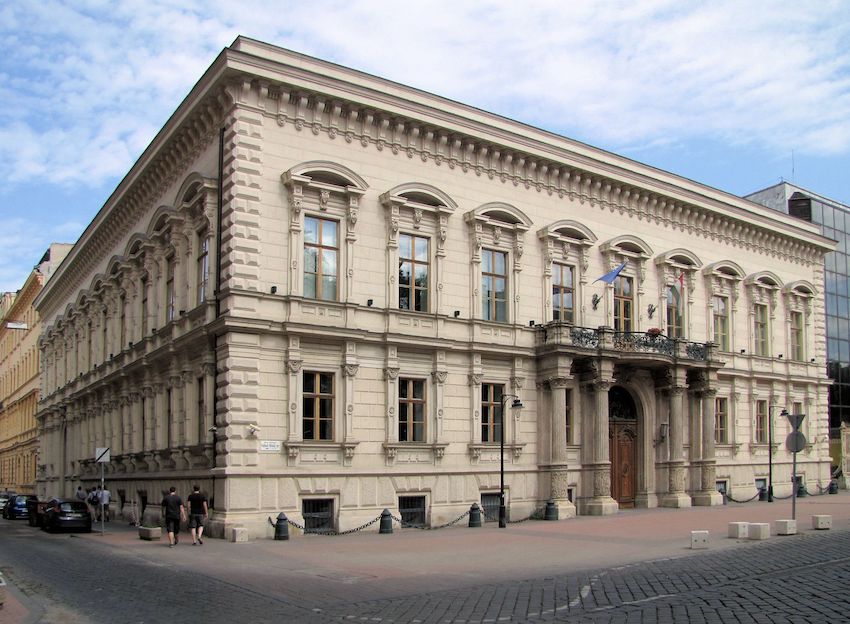
The event entitled “Challenging Times for Europe – Thoughts from a Swiss Perspective” was part of the prestigious Carl Lutz’s lecture series, hosted within the framework of the “Changing Orders Research Programme” of the Second Swiss-Hungarian Cooperation Programme. This collaborative effort is spearheaded by the Embassy of Switzerland in Hungary and Andrássy University Budapest.



The AUB Mirror Hall served as the venue for the Swiss President’s address, attracting over 200 guests, including ambassadors, diplomats, Hungarian invitees and students. Notably, AUB stands as a unique university outside the German-speaking world, offering education exclusively in German since its establishment in 2001. Its diverse support base includes contributions from Hungary, the Federal Republic of Germany, the Republic of Austria, the Free State of Bavaria, the Federal State of Baden-Württemberg, the Swiss Confederation and the Autonomous Region of Trentino South Tyrol.


The evening commenced with a warm welcome from Professor Zoltán Tibor Pállinger, Rector of Andrássy University Budapest, who introduced President Amherd’s illustrious career. The participants eagerly awaited Amherd’s insights into Europe’s current challenges, framed through the lens of Swiss experience and perspective.

In her speech, President Viola Amherd eloquently articulated the historical parallels and Switzerland’s enduring commitment to European cooperation, emphasizing the intensive and friendly relations between Switzerland and Hungary, particularly in the economic and cultural areas. Her remarks shed light on the complexities of contemporary European dynamics, offering valuable perspectives on navigating turbulent times and fostering democracy and mutual understanding across borders:
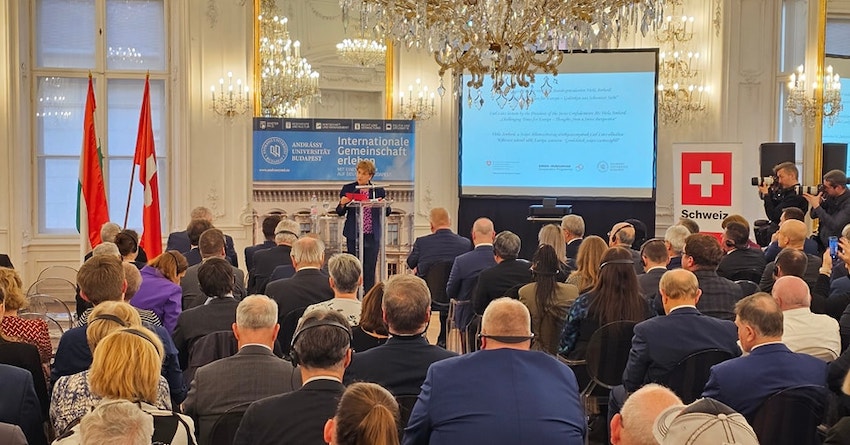
“Professor Pállinger, Excellencies, Ladies and Gentlemen,
Thank you very much for the invitation and for your kind words. I am very pleased to be able to speak to you today: it is a sign of freedom. A freedom that is under threat in so many places in the world. According to the United Nations, human rights are eroding in all regions and there is a global trend of democratic recession. Conversely, we are seeing more of what might be called ‘autocratic inflation’.
In times like these, it is even more important for young people to become involved and defend democratic values and individual liberties. My wish for you is that you have the opportunities and the strength to shape your future and the future of Hungary in the best possible way!

As you know, your country will hold the EU Council Presidency in the second half of this year – a task that has become even more challenging in the current climate. I will discuss this with President Tamás Sulyok and Prime Minister Viktor Orbán here in Budapest tomorrow. We discuss Swiss-Hungarian relations, bilateral relations between Switzerland and the EU, and the security situation. I would like to talk to you today about these issues and also briefly about where I see Europe in the world.
Excellencies, Ladies and Gentlemen,

As our continent is a small landmass that has always seen migratory movements, there has been contact between our ancestors for what seems like an eternity. In my home region of Valais (Wallis), for example, there is a river called the Navizence. Whether there is a connection with the Hungarian word ‘víz’, meaning water, has been debated by scientists. Indeed, Magyar artefacts have been found in Valais.
Better known are the contributions of Hungarian watchmakers in Switzerland, or Swiss confectioners such as Emile Gerbeaud in Budapest or Christoph Caflisch in Pécs, Hungary. And as you may know, after the Hungarian Uprising was crushed in 1956, Switzerland took in some 12,000 Hungarian refugees. The solidarity of the population was enormous at that time.
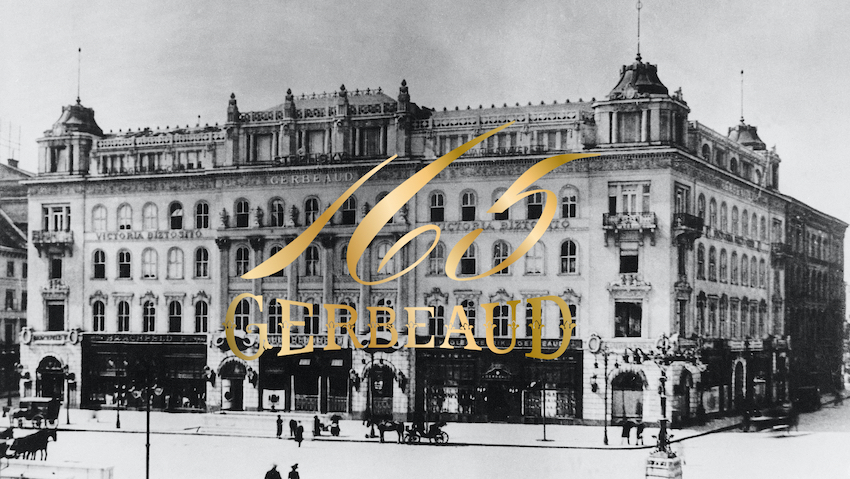
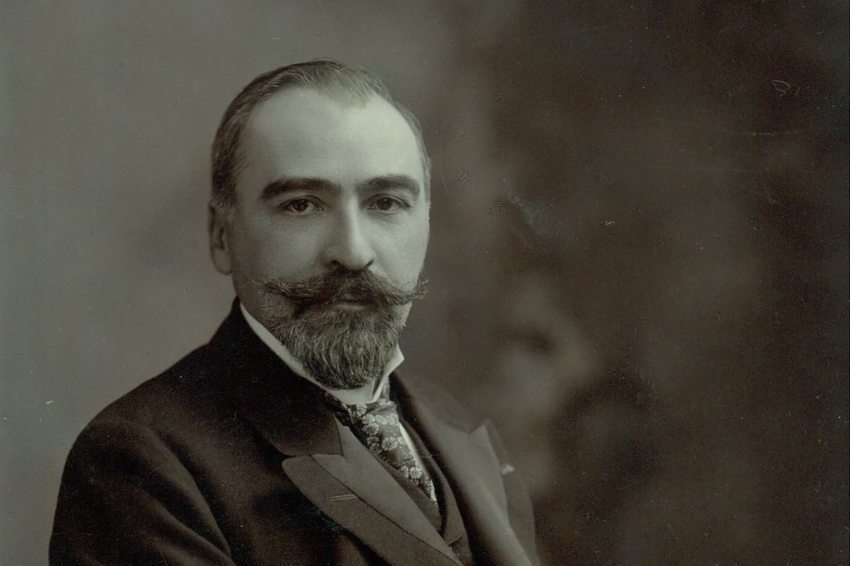
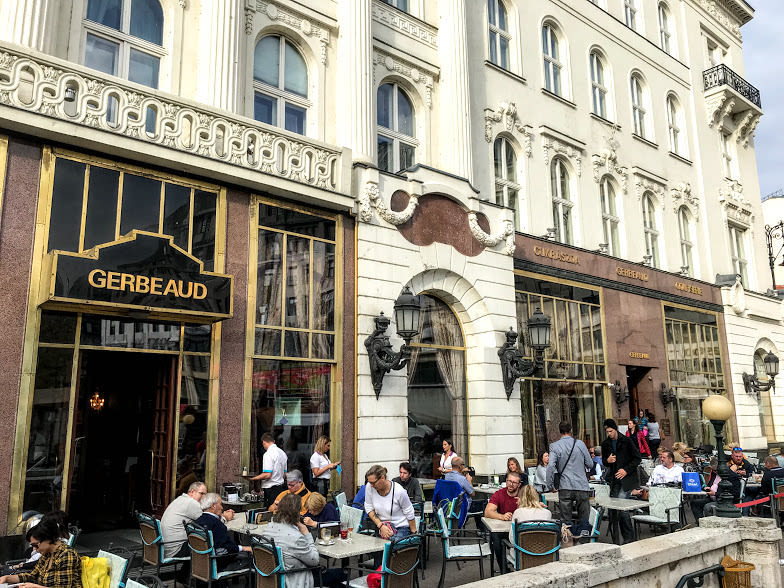
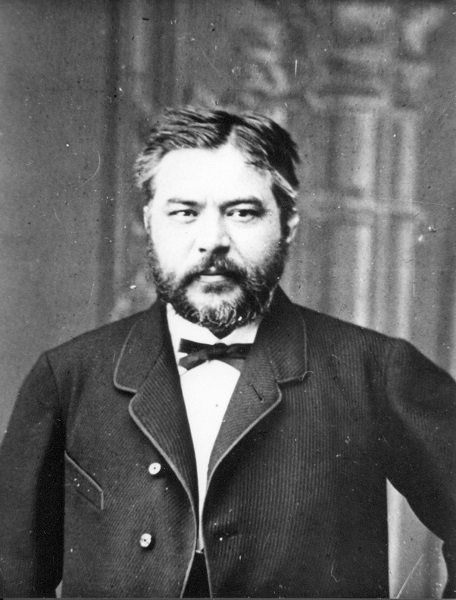
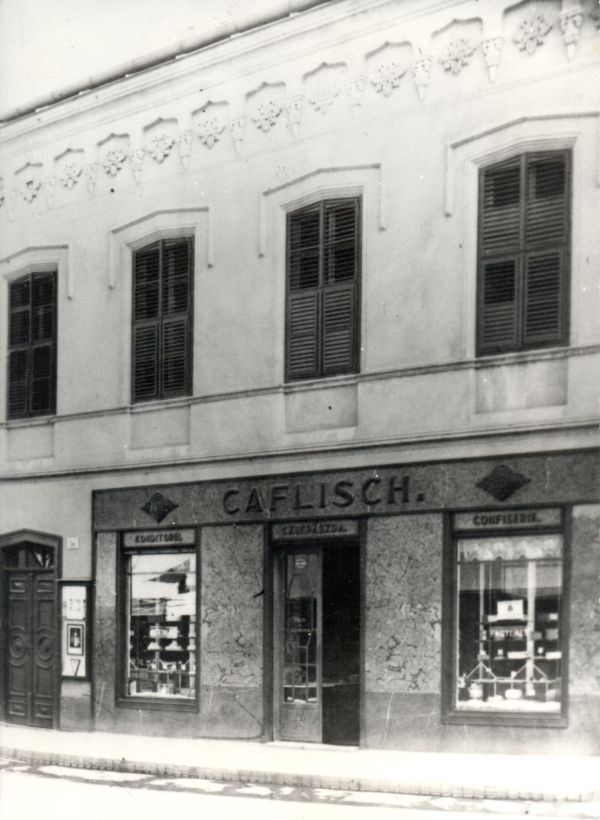
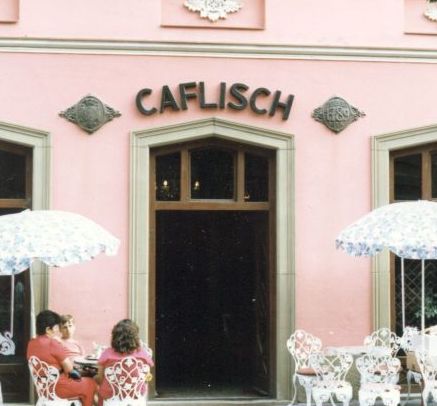
Today, Switzerland and Hungary enjoy close and friendly relations at all levels. For example, there are around 900 Swiss companies in Hungary; they provide more than 29,000 jobs. In return, investors naturally expect a stable business environment and investment security.
Cultural exchange is also important. A number of Swiss artists live and work in Hungary – many of them in the music sector. They are attracted by your country’s long musical tradition. Our Embassy also contributes to this rewarding cultural exchange through the Francophonie program, the Book Festival and other events.
There is also a lively exchange at the political level. Our governments don’t agree on everything; on migration, for instance, Switzerland is in favour of Europe-wide solidarity. However, it is important – especially when we have different opinions – that we talk to each other.
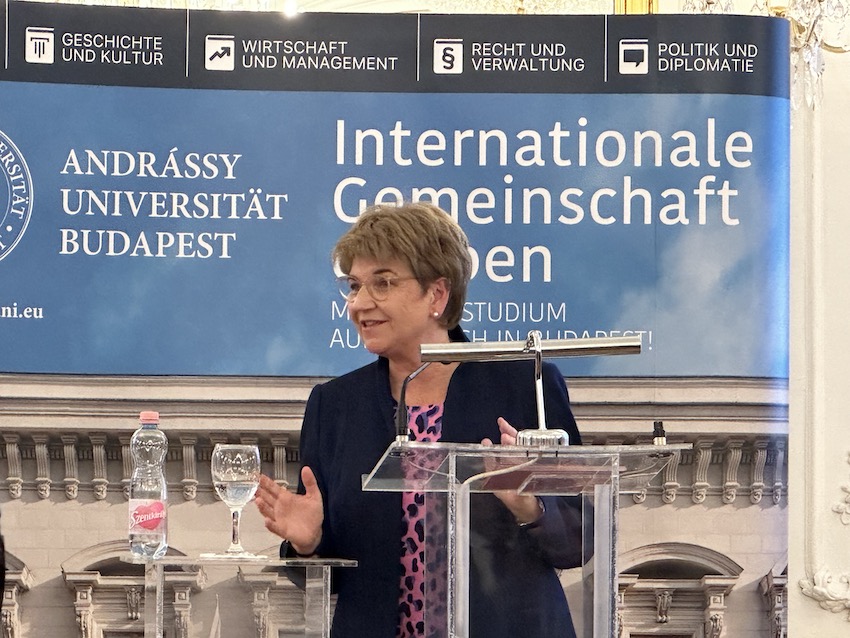
Switzerland and Hungary are positioned differently in Europe. As you know, my country is not a member of the EU. However, Switzerland has always been a European Union in miniature: a place where some of the great European cultural areas, the German, French and Italian-speaking worlds, came together to create something new.
Switzerland is known as a country that was forged by the political will of its people: there is no linguistic or ethnic bond that binds us to each other. Over the centuries we have developed complex and unique mechanisms for working together. Federalism protects the freedom of action of the cantons and language regions. The principle of collegiality in government means that the main political forces are involved in decision-making. And above all, voters have great influence in the system of direct democracy.
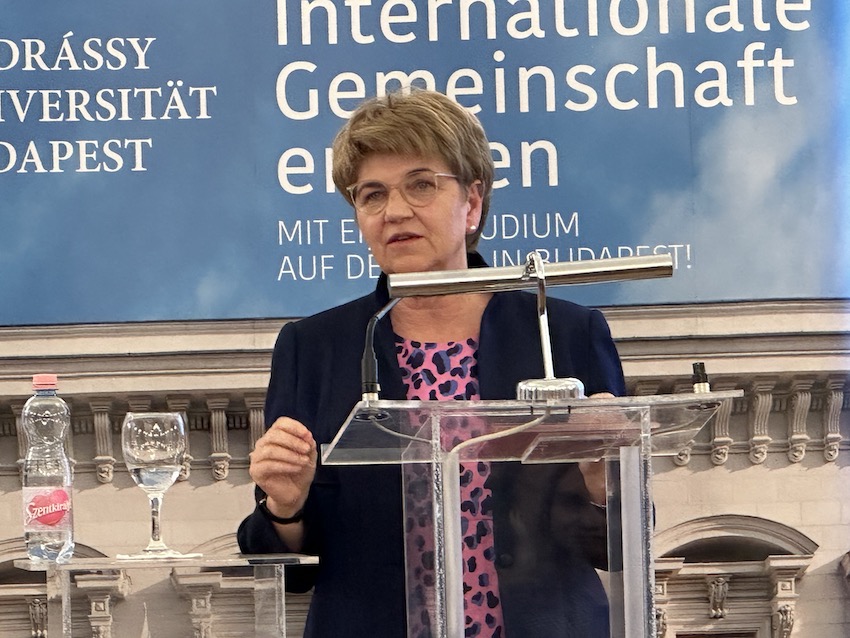
Every federal law is subject to either an optional or mandatory referendum. The popular initiative is also a widely-used tool. In our most recent referendum, for example, the Swiss people decided – contrary to the recommendations of the government and parliament – that retirement pensions should be increased from 12 to 13 monthly payments each year. It is now our government’s difficult task to find the funds.
Not every voting issue is equally complex. A few years ago we debated whether farmers must keep their cows’ horns intact to qualify for subsidies. Some people felt strongly about this for animal welfare reasons. But the majority decided that hornless cows are okay too…
For years, the most difficult issue for Switzerland has been how to organise its relations with the European Union. This is not easy for us, even though Switzerland and the EU share so many interests and values. The EU’s success in securing peace in Western and Central Europe is an achievement for which it was rightly awarded the Nobel Peace Prize in 2012. Switzerland and the EU also pursue very similar foreign policy objectives and work closely together in many areas.
The challenge in relations between Switzerland and the EU lies elsewhere: in the many, sometimes very technical, issues that shape our relations. These include overland transport, air transport, agriculture and the free movement of persons.
A few weeks ago, relations between Switzerland and the EU entered a new phase: we started negotiations to renew our partnership and make it fit for the future. We both adopted mandates in mid-March, and on 18 March I opened negotiations with the President of the European Commission, Ursula von der Leyen.
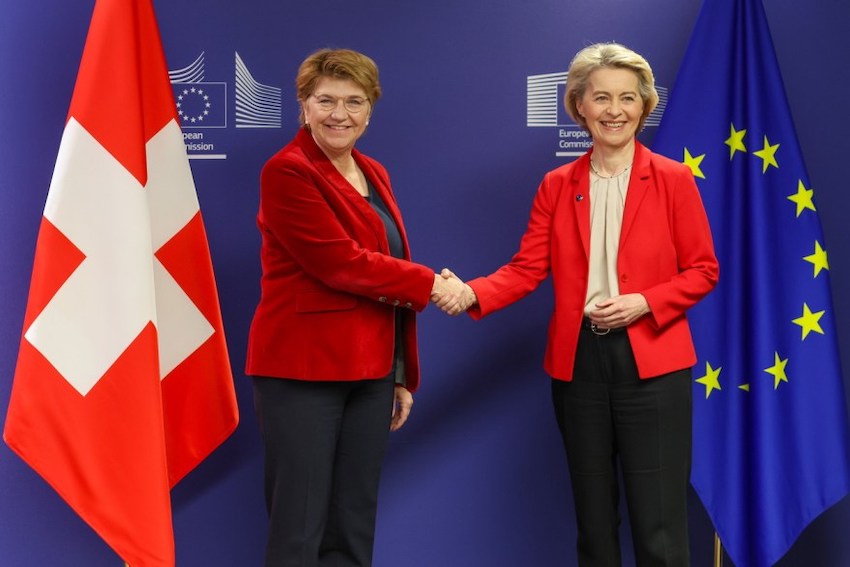
For Switzerland it is about access to the European market for our companies, labour-market-oriented immigration and wage protection. It is also important to us that our researchers can participate in European projects. A positive result, for which we will do our outmost, is in the interests of both Switzerland and the EU – it is important that we maintain a close and multifaceted partnership. A successful outcome that is also accepted by the Swiss people will be good for the EU and good for Switzerland. Positive, constructive processes are particularly important at the moment because there is not much room for disagreement between entities that have so much in common.
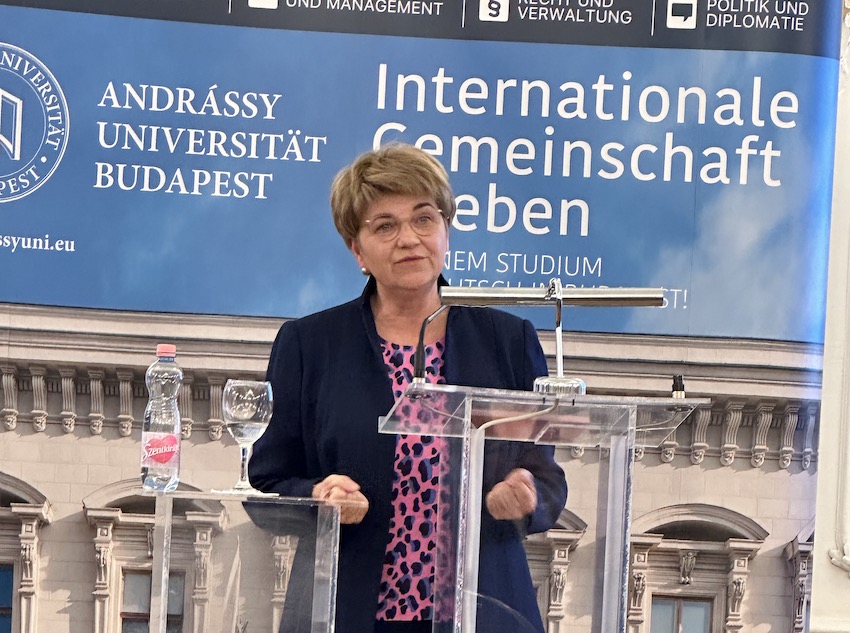
The other challenges we face are simply too great. We can see that autocratic rulers feel threatened by liberal values. Russia’s war against Ukraine is an extreme example of this. Switzerland is a neutral country, but we have never made a secret of our solidarity with Ukraine. Our solidarity does not come from idealism or naivety. It is in the interest of us all. As a small country, Switzerland in particular has an existential interest in ensuring that international relations and the international order are founded on binding rules and not on the principle of ‘might is right’. I know that solidarity with the people of Ukraine is also strong among the Hungarian population, even if it is sometimes overshadowed by political discourse.
In addition to its humanitarian commitment, Switzerland is focusing on the future reconstruction of Ukraine. We consider this to be of strategic importance for the stability of our continent. We held a conference in the summer of 2022 to define the framework for the political process that will guide Ukraine’s reconstruction. But before we can rebuild, there must be peace.
The philosopher Immanuel Kant stated: “Peace is the masterpiece of reason” (Der Friede ist das Meisterstück der Vernunft). Unfortunately, at the moment we seem far from it. However, it would be unforgivable if we did not try to bring about a just and lasting peace once the Russian war against Ukraine is over. Above all, it is the great suffering of the civilian population and the tragic consequences of the war in Europe and worldwide that compel all states to take action.

Working for the peaceful coexistence of peoples is one of the tenets of our constitution. For this reason and out of solidarity with the Ukrainian people, we will hold a summit on peace in Ukraine. It is a matter of taking the first concrete steps towards a peace process. The summit will serve as a forum where all participating states can put forward their ideas and visions. To this end, we need the commitment and support of a large part of the international community.
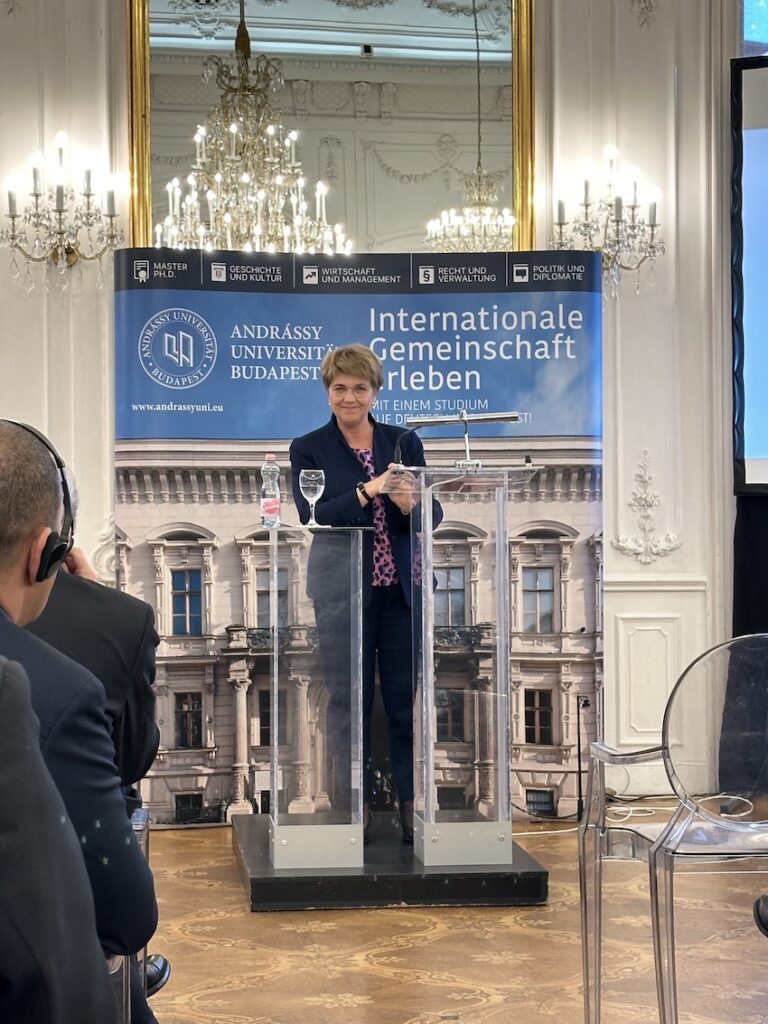
Excellencies, Ladies and Gentlemen,
As I draw to a close, I would like to offer a few personal reflections on my vision for Europe’s future. Our continent is one of the smallest; our share of the world’s population and of the global economy is shrinking. There are other sources of conflict besides the war in Ukraine, and there is no overarching organisation that can speak for the whole continent. However, the Council of Europe, the EU and the Organisation for Security and Co-operation in Europe continue to be very important.
From a Swiss perspective, the launch of the European Political Community (EPC) in 2022 was also a positive development, as it is a platform for dialogue on the major issues facing our continent.
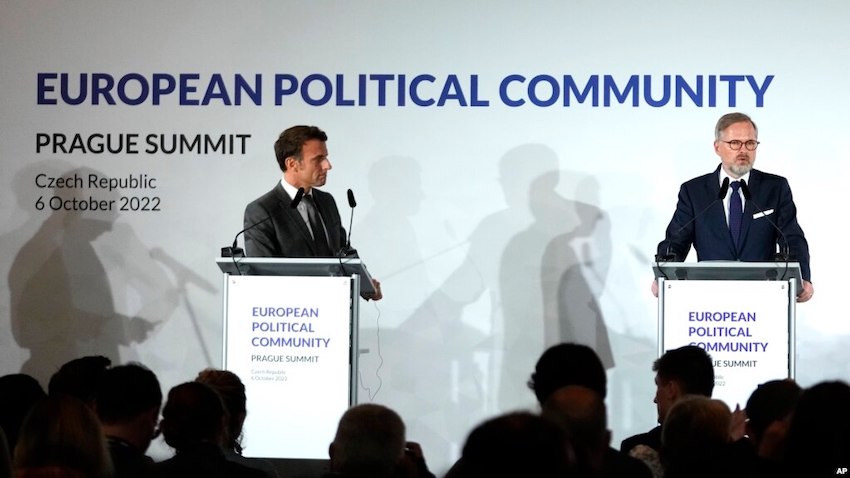
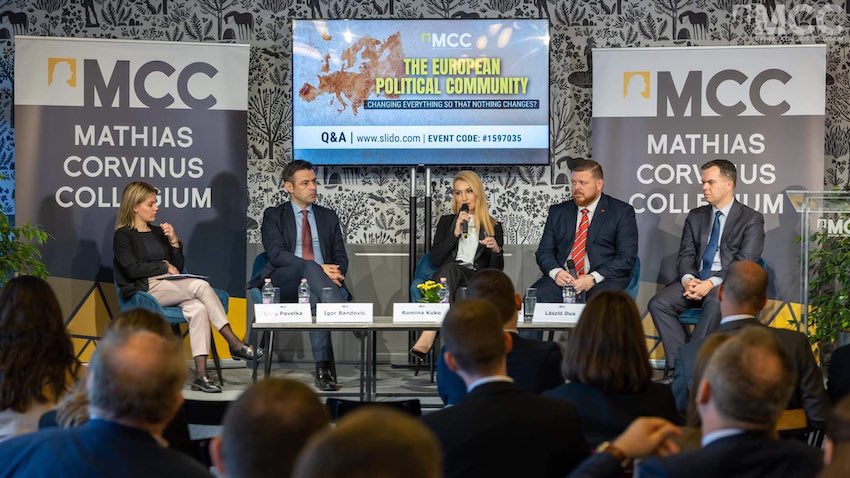
Democracy, the rule of law, human rights and social equity: Europe has played a key role in shaping these values, not least because of the lessons learned from historical mistakes. As Europeans, we must strive to make our political, economic and social model a beacon. But only if these values are cultivated in Europe will soft power work.
Hungary, Switzerland, Europe as a whole: we must join forces to defend our values and interests if we are to survive the current global democratic recession and preserve our security and prosperity. If we remember our heritage and our strengths, we will meet current and future challenges. I hope also thanks to you! Thank you!”
The lecture was followed by questions from the attendees and then by a reception.
Meeting of the President of the Swiss Confederation and the President of Hungary
The Swiss President Viola Amherd’s official visit continued with a series of meetings, including a significant encounter with her Hungarian counterpart, President Dr. Tamás Sulyok. Their discussions primarily revolved around Switzerland’s bilateral cooperation, particularly within the framework of the second Swiss contribution to selected EU member states, the ongoing Swiss-EU negotiations, the next EU Council Presidency by Hungary and the European security situation. Additionally, they delved into the various opportunities and challenges present in bilateral economic, cultural and scientific relations between the two nations.




Joint Press Briefing:
“National sovereignty is equally important for both Switzerland and Hungary, a fundamental issue”, emphasized President Tamás Sulyok during the joint press briefing held with the President of the Swiss Confederation, Viola Amherd. The President of Hungary stated that during the meeting they agreed on four thematic priorities, namely establishing sustainable peace, protecting civilians, enhancing the effectiveness of the United Nations Security Council (UNSC), and addressing climate security issues. He also noted that the Hungarian community living in Switzerland is an important link in strengthening relations. Both Heads of States concurred on the importance of viewing each other as significant political and economic partners and allies on many European issues. “That is why preserving friendly relations and strengthening good ties is a shared objective”, emphasized President Sulyok, also pointing out: “Switzerland is a neutral state surrounded by the European Union, from which there is much to learn.”
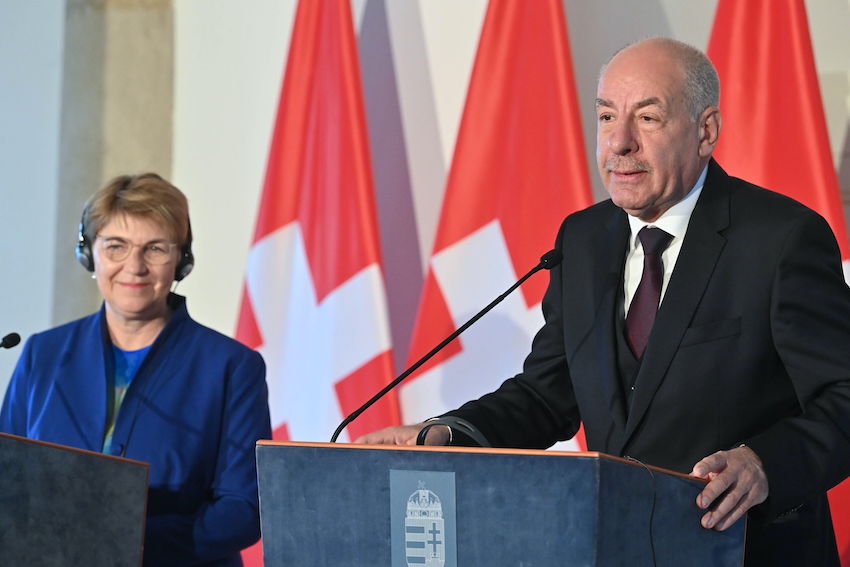
“There is a rising trend in economic relations, which is well perceptible in the fields of trade and investments. In recent years, Swiss companies have become one of the most active investor groups in Hungary, with Swiss companies operating here, continuously expanding their activities” – stated President Sulyok. “Both Hungary and Switzerland attach priority to education, research, development and innovation, there is an outstanding inter-institutional cooperation between the two countries” – he said, adding that the European Organisation for Nuclear Research (CERN), headquartered in Switzerland, established its data centre at the Wigner Research Centre for Physics of the Hungarian Academy of Sciences.
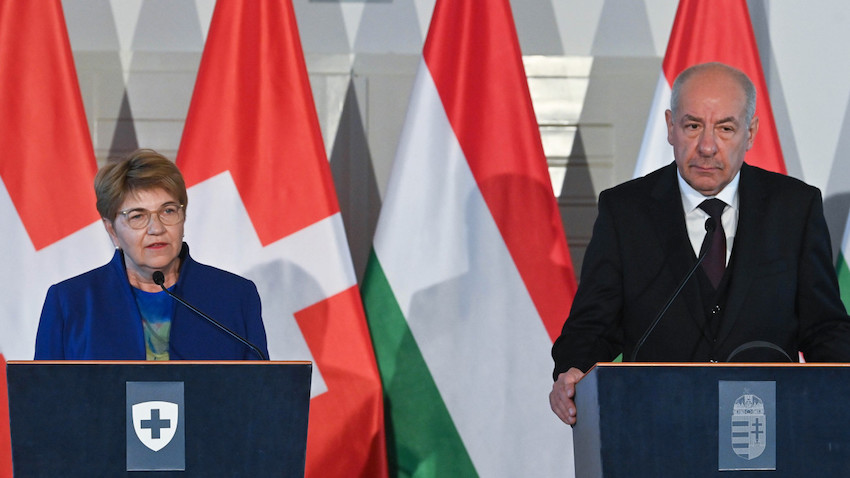
“It is important to strengthen cohesion and dialogue on the European continent, especially in today’s situation” emphasized President of the Swiss Confederation Viola Amherd. She pointed out that 2024 is an important year not only for Hungary to take over the next EU Council Presidency, but also for Switzerland and European politics. The Swiss President stated that she and her Hungarian counterpart discussed the tense European security situation, the war of Russia against Ukraine, and the Ukraine peace conference planned for June 2024, hosted by Switzerland. “The summit aims to launch the first steps towards a thorough peace process. All participating states should be given the opportunity to contribute to the conference with their vision for a lasting and just peace in Ukraine. We look forward to Hungary joining this important discussion.” – she stressed. Economic topics were also addressed, such as the importance of reliable and predictable framework conditions, as Switzerland is one of the largest investors in Hungary.
Meeting of the Swiss President and the Hungarian Prime Minister
Prime Minister Viktor Orbán met the President of the Swiss Confederation Viola Amherd and discussed significant topics, including Hungary’s upcoming EU Presidency, European political dynamics and security concerns, bilateral relations between the two countries and the Swiss-Hungarian economic cooperation – PM’s Chief of Press said.
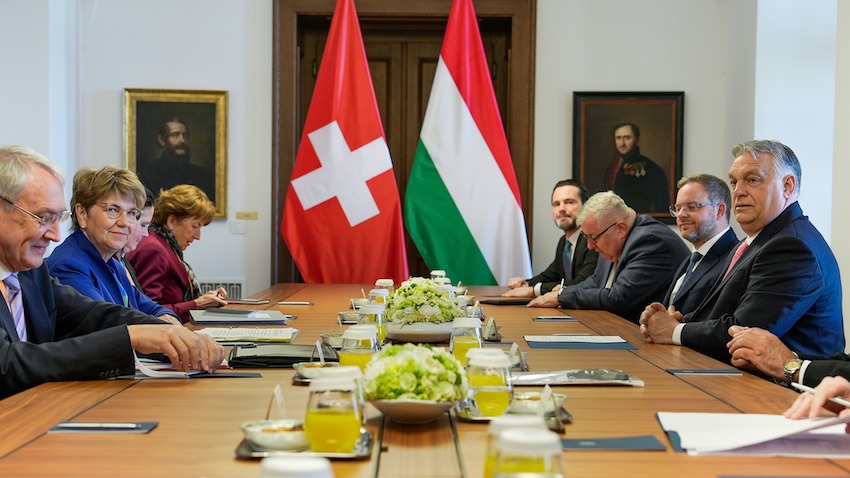
Switzerland is looking forward to Hungary’s upcoming EU Council Presidency from 1 July 2024, and is ready to cooperate closely during the six-month term, – said the Swiss President. The parties also discussed economic issues before addressing the increasingly serious conflicts around the world. Prime Minister Orbán and President Amherd agreed that efforts should be made to ease tensions in the Palestinian-Israeli conflict and work towards de-escalation.
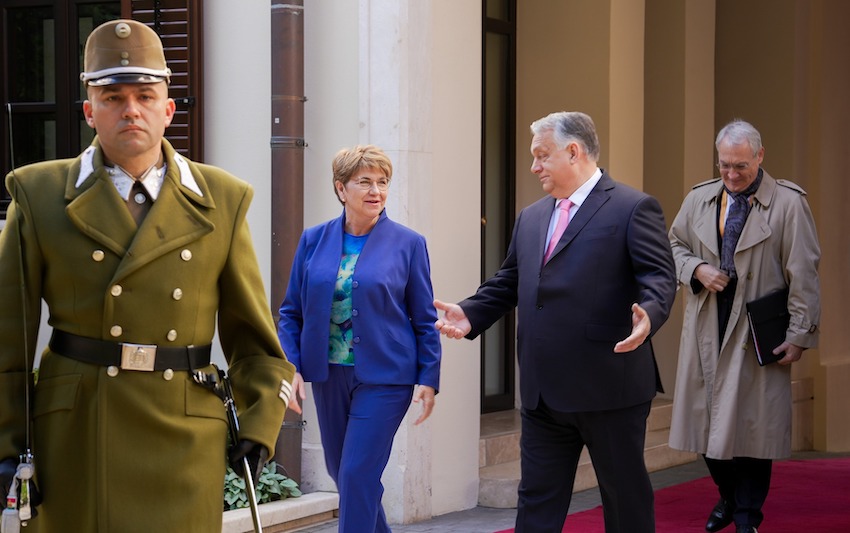
In relation to the Russian war in Ukraine, the Swiss President outlined plans for an Ukraine peace conference scheduled to take place in Switzerland in June 2024. The Prime Minister affirmed Hungary’s backing for all peace initiatives, but stressed the necessity for an immediate ceasefire as a precursor to peace negotiations – said the Prime Minister’s press chief.
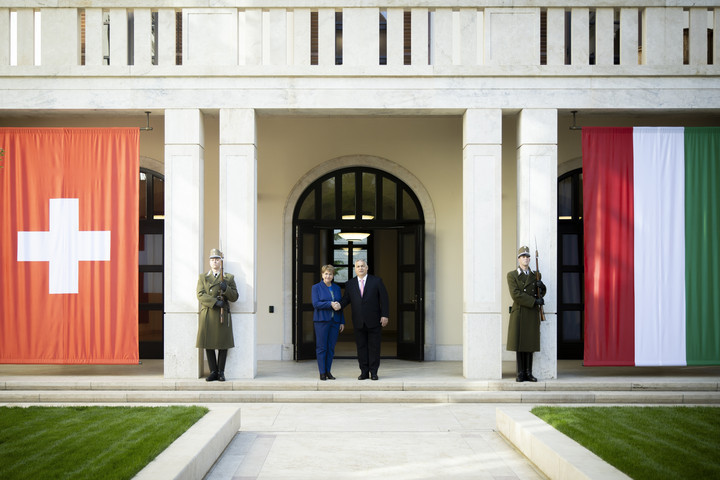
Sources: Swiss Embassy in Budapest, Andrássy University Budapest
Photos by the Swiss Embassy, Andrássy University, MTI, MTI/Bruzák Noémi, MTI/Prime Minister’s Press Office, and DPA

